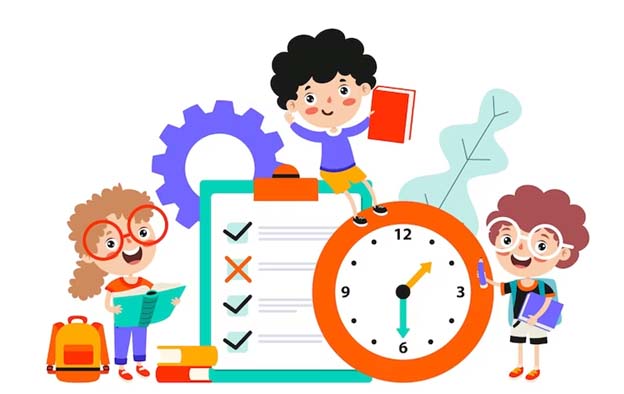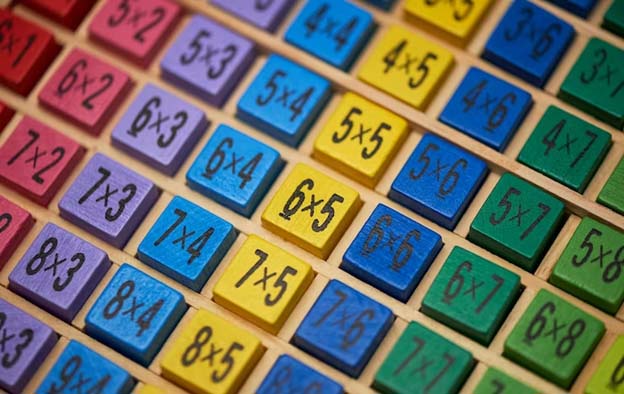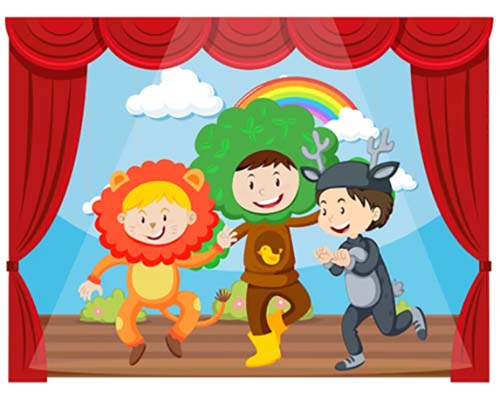It is essential for children’s general development and future success to be taught planning skills. These abilities enable people to order their ideas, set objectives, efficiently manage their time, and come to wise judgements. By encouraging planning skills in children at a young age, parents and teachers give kids skills that will benefit them all their lives. The capacity to plan is even more important in our fast-paced, constantly distracted age. The need of teaching children planning skills is examined in this introduction, which also highlights the positive effects it can have on their academic success, personal development, and acquisition of vital life skills.
Importance Of Planning Skills For Children
Planning skills are invaluable for children as they play a pivotal role in their overall development and future success. Teaching children how to plan helps them in various aspects of life:
Academic Success: Effective planning aids in time management, allowing children to complete assignments, study for exams, and meet deadlines. This leads to improved academic performance and reduced stress.
Goal Achievement: Planning instils the concept of setting and achieving goals. Children learn to break down big tasks into manageable steps, fostering a sense of accomplishment and motivation.
Critical Thinking: Planning involves analysing options, anticipating outcomes, and making informed decisions. These critical thinking skills are essential for problem-solving and decision-making in everyday life.
Time Management: Children learn to allocate time wisely, balancing schoolwork, extracurricular activities, and leisure. This skill sets them up for efficient time management in adulthood.
Responsibility: Planning teaches children to take ownership of their tasks and responsibilities. They understand the consequences of procrastination and develop a sense of accountability.
Adaptability: Planning also involves flexibility. Children learn to adjust their plans when unexpected events occur, fostering adaptability and resilience.
Life Skills: Beyond academics, planning skills are fundamental in daily life, from organising chores to managing finances. These skills contribute to self-sufficiency and independence.
Fun Activities to Teach Planning Skills
Success in school, the workplace, and life depends on one’s capacity for planning. Playing board games, baking or cooking, creating a budget, organising an event or party, and playing video games are just a few of the enjoyable activities that can help students learn planning skills. These exercises can teach kids how to plan ahead, weigh all of their options, and carry out their goals.
Daily Schedules: Create a visual daily schedule together with your child. Use colourful charts or whiteboards to outline their routine, including time for study, play, chores, and hobbies. Encourage them to follow the schedule, updating it as needed.
Setting Goals: Teach your children the importance of setting goals and help them create achievable objectives. Break down large goals into smaller, manageable tasks, and guide them in planning the necessary steps to accomplish each one.
Meal Planning: Involve your children in meal planning activities. Together, decide on a weekly menu, make a shopping list, and allocate tasks for meal preparation. This exercise helps them develop planning skills while also promoting healthy eating habits.
Project Planning: Engage your children in planning projects, such as building a model or organising a family event. Encourage them to create timelines, allocate resources, and set deadlines. This fosters their ability to plan and execute tasks effectively.
Puzzle Solving: Engaging in puzzles, riddles, and brain-teasers helps children develop problem-solving and planning skills. Encourage them to strategise, analyse different possibilities, and devise plans to solve the puzzles successfully.
Also Read: Learning Through Play: Theory, Activities and Examples
Tips to Teach Planning Skills
Enhancing planning skills is essential for academic and life success. These handy tips on teaching planning skills will equip learners with effective techniques for time management, project structuring, and strategic task execution, helping them navigate their academic journey and beyond with increased confidence and efficiency.
Lead by Example: Children learn by observing their parents or guardians. Demonstrate effective planning techniques by maintaining your own schedules, setting goals, and following through with your plans. Be a positive role model.
Provide Guidance: Guide your children through the planning process initially, offering support and suggestions. Gradually, encourage them to take more ownership of their plans, helping them develop independence and critical thinking skills.
Celebrate Achievements: When your children accomplish their goals or execute their plans successfully, celebrate their achievements. Recognize their efforts and praise their planning skills, reinforcing their motivation to continue planning effectively.
Adjust Expectations: Understand that children’s planning abilities evolve as they grow. Adjust your expectations according to their age and developmental stage. Encourage their progress and offer constructive feedback to improve their planning skills.
Planning skills examples
Developing planning skills at a young age is crucial. Here are some examples of planning skills for school-going children:
Time Management: Time management involves allocating appropriate time for different tasks. For example, setting aside time for homework, revision, hobbies, and relaxation. Using a planner or digital calendar to schedule activities can be quite helpful.
Also Read: Time Management Skills for kids
Setting Goals: The ability to set short-term and long-term goals is an essential planning skill. This could be as simple as aiming to complete a certain number of maths problems each day or setting a long-term goal of finishing a book within a week.
Prioritising Tasks: It’s important to understand what tasks are more urgent or important than others. This skill involves categorising tasks based on their importance and urgency, and addressing them accordingly.
Project Planning: This involves breaking down larger tasks or assignments into smaller, manageable tasks, and setting a timeline to complete them. For example, if a child has a book report due in a month, they could divide the book into four parts and plan to read one part each week.
Resource Organisation: This refers to the ability to organise the resources necessary to complete a task. For instance, a science project might require certain materials for an experiment, which the student should plan to obtain in advance.
Task Sequencing: This skill involves understanding the logical order of tasks. For example, a child needs to finish their homework before they can play a video game or watch television.
Contingency Planning: This involves developing alternative plans in case the original plan does not work out. For example, if a child planned to do their homework in the afternoon but had an unexpected family outing, they should have a backup plan to do their homework in the evening.
Self-monitoring: This skill involves regularly reviewing and evaluating one’s own progress towards achieving a goal. This can involve checking off completed tasks in a planner or reflecting on the effectiveness of their study strategies.
Self-motivation: Encouraging children to develop a sense of self-motivation can support their ability to set their own goals and stick to their plans. It can involve rewards, recognising their own achievements, and developing positive attitudes towards their tasks.
We at EuroSchool guide our students and provide them with tools to develop these skills. The real world is full of unexpected situations, we teach them planning skills for their further growth.











